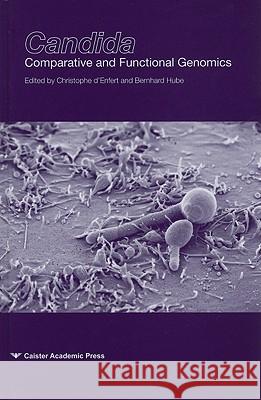Candida: Comparative and Functional Genomics » książka
Candida: Comparative and Functional Genomics
ISBN-13: 9781904455134 / Angielski / Twarda / 2007 / 428 str.
Candida species are important human pathogens that are best known for causing opportunist infections in immunocompromised hosts (e.g. transplant patients, AIDS sufferers, cancer patients). Infections are difficult to treat and can be very serious. 30-40% of systemic infections result in death. The sequencing of the genome of C. albicans and those of several other medically-relevant Candida species has provided a major impetus for Candida comparative and functional genomic analyses. These have provided a fascinating insight into the molecular and cellular biology of these fungi, and these should pave the way for the development of more sensitive diagnostic strategies and novel antifungal therapies. In this timely book, international experts provide comprehensive and authoritative reviews of these important organisms. The topics covered include: genome dynamics of C. albicans; molecular, epidemiological, and population studies of C. albicans; the parasexual cycle in C. albicans; comparative genomics of the hemiascomycetes group and of different Candida species; databases and the challenges that their curators are facing; transcriptome analysis; proteomics; molecular evolution of the genetic code; stress responses; regulation of morphogenesis; cell wall biology; interaction with host cells; analysis of gene function; antifungal resistance mechanisms; and much more. This book is essential reading for all Candida genome and molecular biology researchers and a recommended text for scientists working on fungal genomics and molecular biology.











